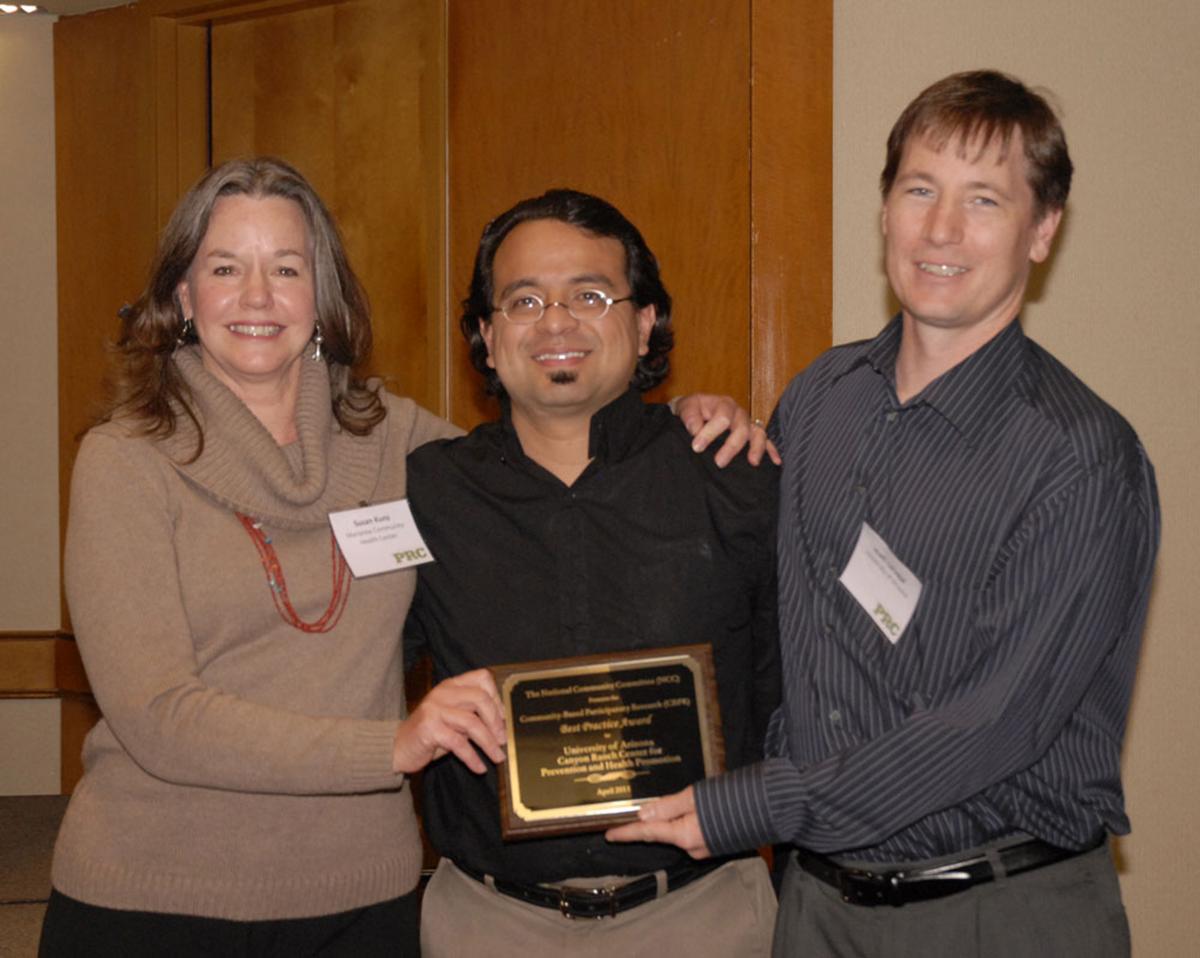The Arizona Prevention Research Center Receives Best Practice Award

(L to R): Susan Kunz; Antonio Tovar, NCC Chair; and Scott Carvajal.
Working in close partnership with communities in U.S.-Mexico Border states to identify and address local health issues is a core value of the Arizona Prevention Research Center (AzPRC). In recognition for its commitment to Community-based Participatory Research (CBPR), the AzPRC received the Best Practice Award from the National Community Committee (NCC).
Based at the University of Arizona Mel and Enid Zuckerman College of Public Health, the AzPRC is one of 11 Prevention Research Centers in the United States to receive the honor.
The award recognizes the AzPRC and its community partners for the use of Community-based Participatory Research principles and practices in their research projects.
Funded by the Centers for Disease Control and Prevention, there are 37 Prevention Research Centers located in 27 states. The NCC is composed of representatives from all Prevention Research Centers.
The criteria for the award included formal involvement of community partners in research project design, budgeting, evaluation, and in governance and evaluation of the partnership. Also considered in the selection process were the inclusion of community members as co-authors in policy position papers, peer-reviewed journal articles, and presentations.
The award was presented at the 25th anniversary conference in Atlanta, Ga. on April 12, 2011. Principal Investigator Scott Carvajal, Ph.D., M.P.H. and Susan Kunz, M.P.H., co-chair of the Community Action Board, accepted the award on behalf of the AzPRC. The award application was coordinated by Maia Ingram, M.P.H., deputy director of the center.
The mission of the Arizona Prevention Research Center is to partner with communities to improve the health and well-being of people living in the U.S.-Mexico Border states through research, training, advocacy and policy change. The Center houses diverse programs and activities that use community-based participatory action research to focus on the prevention of chronic disease in the border region. The Community Action Board (CAB) represents a group of organizations along the Southern Arizona border with Mexico that serves as an advisory body to the Center. The philosophy of the Center is that improving health outcomes requires a collaborative partnership between universities and communities
Related Links:
Prevention Research Centers Recognized for Commitment to Community Partnerships
ASPH Friday Letter, May 6, 2011

